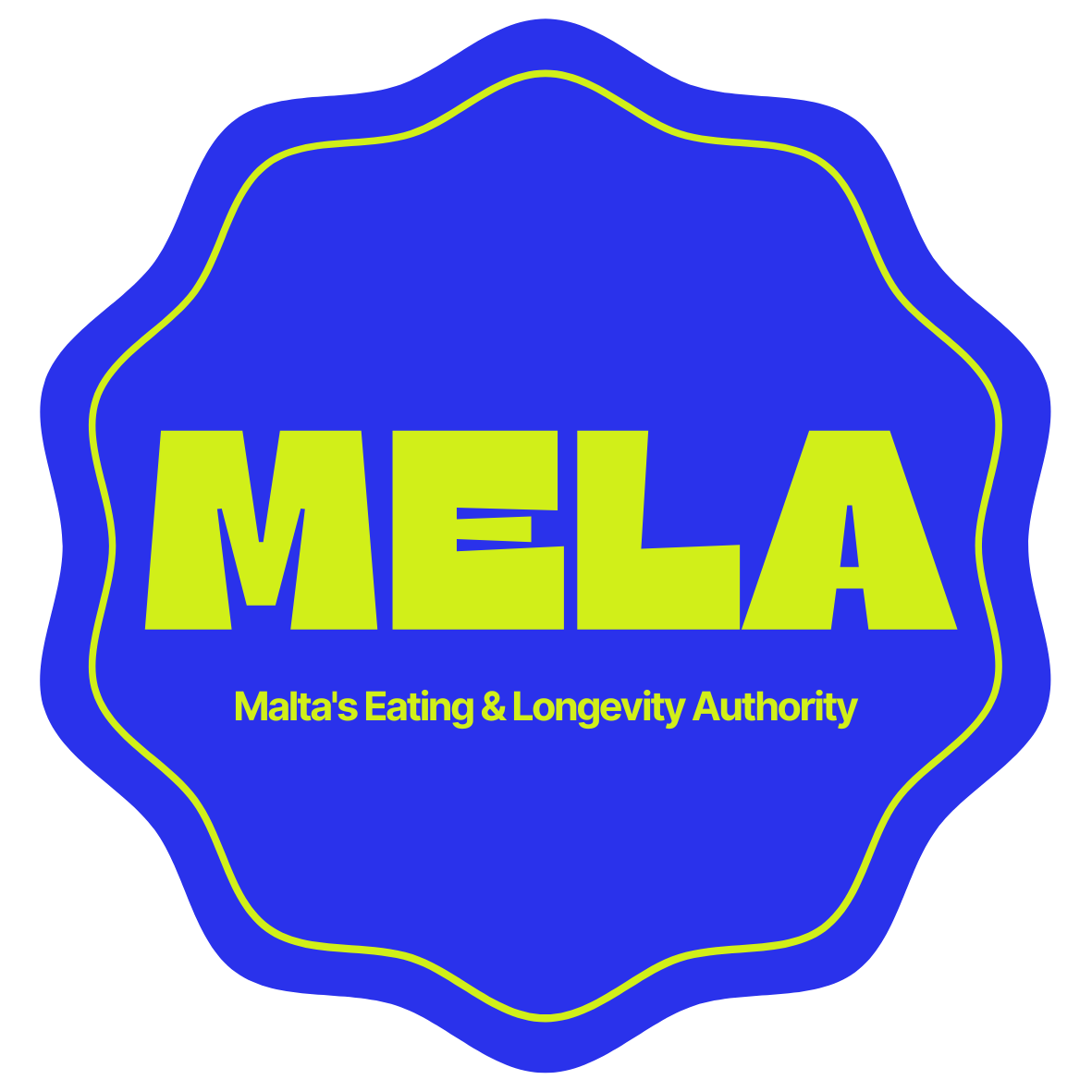Did you know olive oil production in Malta generates over €3.2 million annually and impacts 340 farming families, while milo grain quietly strengthens food security in arid regions? In a world obsessed with superfoods from afar, Malta’s ancient treasures, olives and milo, are proof that real health and environmental sustainability can be found right here on the island. This guide unpacks how these two humble crops are transforming Malta’s agriculture, diet, and well-being while ensuring a future-proof ecosystem.
.png)
The Mediterranean Superstars of Malta: Olives and Milo
Malta’s Mediterranean climate is not just ideal for postcard-perfect vacations; it’s also a powerhouse for cultivating nutrient-rich crops like olives and milo. With 2,847 hectares of olive groves and 450 hectares of milo fields, these lands represent the resilience and sustainability of Maltese agriculture.
Why Olives Are the Heart of Malta’s Health and Economy
Maltese olive oil is not only delicious but also a local hero for health-conscious eaters. Here’s why:
- Rich in antioxidants: Maltese extra virgin olive oil contains 250-400 mg/kg of polyphenols, compounds that reduce inflammation and support cardiovascular health.
- Key to the Mediterranean Diet: Research highlights the Mediterranean diet’s ability to lower cardiovascular disease risks by 30%, as noted in this sustainability review.
Milo: The Unsung Hero of Malta’s Arid Landscapes
Milo, a drought-resistant grain, yields approximately 890 tons per season even under harsh conditions. Though primarily used in livestock feed, its growing role in traditional Maltese dishes and modern healthy eating initiatives make it indispensable.
Surprising Benefits of Olive Oil in the Mediterranean Diet
Why Olive Oil Is the Superstar of Longevity
Data from studies on Mediterranean diets indicate extraordinary health benefits:
- 30% reduction in major heart events: According to scientific studies, olive oil plays a critical role in the Mediterranean diet’s effectiveness.
- Anti-inflammatory magic: Rich in polyphenols, the oil lowers inflammation markers, significantly improving overall health.
Pro Tip: To ensure freshness and maximum nutrients, look for locally produced olive oil certified as extra virgin. Maltese olive oil boasts 35% higher vitamin E content due to shorter harvest-to-bottle cycles.
.png)
The Rising Popularity of Maltese Olive Products
With 73% of Maltese households choosing local olive products, the demand demonstrates growing trust in homegrown quality. Local farm-to-table initiatives have put Maltese olive oils on the global map for their purity and robustness.
Insider Tip: Check out local markets like Marsaxlokk to pick up freshly pressed olive oil, and try pairing it with Maltese hobz for the ultimate traditional snack.
Recipe Highlight: Milo & Olive Fusion Bowl
Celebrate sustainable eating with this easy, nutrient-packed dish blending Malta’s finest crops: milo and olive oil.
Ingredients:
- 1 cup cooked milo grain
- 2 cups fresh spinach
- 1 cucumber, diced
- 1 tomato, chopped
- 2 tbsp Maltese extra virgin olive oil
- Juice of 1 lemon
- Pinch of sea salt
Directions:
- Cook milo according to package instructions.
- Toss spinach, cucumber, and tomato in a large bowl.
- Dress with olive oil, lemon juice, and sea salt.
- Add milo grains, mix well, and enjoy!
Nutritional Profile:
- High in fiber and antioxidants
- Boosts heart health
- Perfect for Mediterranean diet enthusiasts
Sustainability of Olive and Milo Cultivation: A Deep Dive
Agriculture isn’t just about feeding people, it’s also about healing the Earth. Malta’s olive and milo farming methods promote sustainable practices:
- Reduced Water Usage: Farmers have cut water consumption by 15%, ensuring crops thrive without depleting precious resources.
- Lower Carbon Footprint: Locally grown crops require less transportation, lowering greenhouse gas emissions compared to imported goods.

FAQ on Milo & Olive in Malta
Q: How does Maltese olive oil compare to imported varieties?
A: Maltese olive oil is typically fresher because it reaches markets within days of production. Its higher antioxidant levels (28% more than imported options) make it a superior health choice.
Q: Is milo used only for livestock in Malta?
A: No, milo has found its way into traditional Maltese dishes as well as modern recipes, gaining popularity for its drought resilience and nutritional value.
The Economic Backbone: Olive Oil and Milo as GDP Drivers
The numbers tell a compelling story:
- Olive Oil: Generates over €3.2 million annually, contributing significantly to Malta’s agricultural GDP.
- Milo: Adds €680,000 and enhances food security across the archipelago.
Together, these industries support 340 farming families, making a tangible impact on both livelihoods and legacy preservation.
A Bright Future: Farming, Innovation, and Wellness
Malta’s olive and milo cultivation isn’t resting on ancient laurels. Farmers are integrating precision techniques and sustainable measures to ensure these crops thrive despite intensifying climate challenges.
For foodies and sustainability enthusiasts alike, savoring Malta’s olives and milo is more than a culinary choice, it’s a step toward supporting local agriculture, protecting the planet, and enhancing your health.
Start making conscious food choices today by exploring more authentic Mediterranean flavors and recipes. If you’re visiting Malta, don’t miss sampling homegrown olive oils or dishes featuring milo. Your body, and the planet, will thank you.

Explore More Malta Dining Gems:
Top 10 Fine Dining Restaurants in Mellieha
Top 10 Family Friendly Restaurants in Mellieha
Top 10 Romantic Restaurants in Mellieha
Learn more about the MELA Index Revolution
Conclusion
Malta’s rich agricultural heritage, reflected in the cultivation of olives and milo, stands as a testament to the island’s innovative spirit and commitment to sustainability. These Mediterranean staples not only enhance Malta’s GDP and food security but also showcase the remarkable health benefits of ancient crops adapted to modern needs. With olives fueling heart-healthy diets and milo strengthening resilience against climate challenges, Malta is bridging the gap between tradition and forward-thinking agriculture.
For conscious consumers and foodies, embracing locally-produced olive oil and milo-based dishes is a step toward nourishing both the body and the environment. Similarly, for restaurateurs, leveraging these superstars on their menus is a strategic way to support local agriculture while meeting the growing demand for healthier options.
Explore Malta’s homegrown treasures at MELA-approved restaurants and elevate your dining experience with meals that celebrate health, sustainability, and tradition. Additionally, if you’re a restaurateur, consider joining MELA AI, the platform designed to spotlight restaurants that prioritize wellness and sustainability. With its prestigious MELA sticker and tailored branding packages, MELA AI can help your restaurant thrive in Malta’s dynamic dining scene.
Maltese olives and milo are shaping the future of local food culture, discover them today for deeper connections to your health, your food, and your island.
FAQ on Milo & Olive Cultivation in Malta
How does Maltese olive oil compare to imported varieties in terms of health benefits?
Maltese olive oil stands out due to its higher freshness and nutrient density. Locally produced oil reaches markets within days of production, ensuring maximum retention of antioxidants like polyphenols, which average between 250-400 mg/kg in Maltese varieties. Compared to imported olive oils, Maltese olive oil boasts up to 28% higher antioxidant levels and 35% more vitamin E, thanks to shorter harvest-to-bottle cycles. These nutrients play a pivotal role in reducing inflammation and supporting cardiovascular health. Additionally, consuming local products contributes to Malta’s agricultural ecosystem, lowering the environmental footprint traditionally associated with imported goods.
Besides health, what role does olive oil play in Malta’s economy?
Olive oil production generates over €3.2 million annually and supports approximately 340 farming families in Malta. This sector is vital for preserving the island’s traditional agricultural heritage while driving its modern economy. With 73% of Maltese households preferring locally-sourced olive products, demand continues to grow. Furthermore, initiatives like farm-to-table olive oil markets have placed Malta on the global map for sustainable and high-quality olive oil production. Choosing local olive oil not only benefits individual health but also strengthens the community by safeguarding farming livelihoods.
Is Milo only used for livestock in Malta, or does it have a role in human diets?
While Milo has traditionally been used as livestock feed, it is increasingly appearing in Maltese kitchens. As a drought-resistant grain, Milo thrives in the island’s arid areas, producing approximately 890 tons annually. Its rich nutrient profile, including high fiber and antioxidant levels, makes it ideal for human consumption. Popular in traditional Maltese recipes, Milo is also gaining attention among health-conscious eaters as an alternative grain suited for Mediterranean diets. Its versatility allows for seamless inclusion in modern dishes, making it a sustainable choice in food security and healthy living initiatives.
What makes Maltese olive oil a core part of the Mediterranean diet?
Maltese olive oil is a staple of the Mediterranean diet, famous for its proven health benefits, including a 30% reduction in major cardiovascular events. The oil’s high polyphenol content works as an antioxidant, reducing inflammation and improving cholesterol levels. Locally produced oil often enhances these benefits, offering fresher, nutrient-dense options. Scientific studies, like the Environmental and Health Sustainability of the Mediterranean Diet, underscore olive oil as a cornerstone of this eating pattern, which promotes longevity and sustainable agriculture practices.
How are Maltese farmers adopting sustainable practices in olive and Milo cultivation?
To mitigate climate challenges, Maltese farmers are turning to sustainable techniques. Olive and Milo farming now consume 15% less water through targeted irrigation systems, preserving this precious resource. Additionally, reduced fertilizer use and crop rotation improve soil quality over time. Locally produced crops generate a smaller carbon footprint by eliminating long-distance transportation. These eco-friendly methods allow farms to maintain high yields while ensuring environmental harmony, paving the way for a secure agricultural future.
Can tourists find dishes made with Milo and olive oil in Malta?
Absolutely! Many traditional and contemporary Maltese dishes feature Milo and olive oil as central ingredients. Restaurants increasingly showcase sustainable, local produce in meals, offering an authentic taste of the island. Look for menus highlighting “farm-to-table” or “Mela-sticker” culinary options, ensuring diners discover health-conscious meals with local origins. To find restaurants that creatively integrate these ingredients, explore MELA AI – Malta Restaurants Directory, which features eateries committed to sustainability and healthy dining in Malta.
What is MELA AI, and how does it help diners discover healthy options?
MELA AI is a revolutionary platform designed to spotlight restaurants in Malta and Gozo focusing on nutritious and sustainable dishes. It offers a directory of health-conscious eateries and awards them the prestigious MELA sticker for their commitment to healthy dining. Whether you’re a local or a tourist, MELA guides you to Malta’s top-rated establishments serving meals rich in quality ingredients like locally produced olive oil and Milo grain. Restaurants in the directory also benefit from branding opportunities to attract health-conscious and eco-friendly clientele.
How does the Mediterranean diet contribute to sustainability, particularly in Malta?
The Mediterranean diet emphasizes locally sourced, plant-based ingredients, including olive oil, seasonal vegetables, and whole grains like Milo. It uses less land, water, and energy compared to Western dietary patterns while reducing greenhouse gas emissions. In Malta, the widespread cultivation of olives and Milo exemplifies this eco-friendly ethos. By choosing local products, homeowners and diners contribute to a reduced environmental footprint, supporting both sustainability and public health.
What are some beginner-friendly recipes using Maltese olive oil and Milo?
For a quick and sustainable dish, try the Milo & Olive Fusion Bowl! Combine cooked Milo grain with fresh spinach, cucumber, diced tomatoes, and drizzle with Maltese extra virgin olive oil and lemon juice. Add a pinch of sea salt to balance flavors. This dish is not only nutrient-packed and high in antioxidants but also highlights Malta’s agricultural gems. Such recipes showcase the versatility of local ingredients, promoting a healthier lifestyle while reinforcing the importance of sustainable eating practices.
How can restaurant owners promote Maltese olive oil and Milo to attract health-conscious diners?
Restaurant owners can capitalize on the growing demand for healthy dining by joining the MELA AI platform. By incorporating certified Maltese olive oil and Milo into their menus, businesses showcase their commitment to quality and sustainability. Applying for the MELA sticker enhances credibility, signaling to customers that their restaurant meets high health standards. Additionally, offering educational experiences, like olive oil tastings or farm-to-table events, can engage food enthusiasts and build customer loyalty. Partnering with MELA supports market visibility, catering precisely to evolving consumer preferences for health-conscious dining.
Check out another article that you might like:
About the Author
Violetta Bonenkamp, also known as MeanCEO, is an experienced startup founder with an impressive educational background including an MBA and four other higher education degrees. She has over 20 years of work experience across multiple countries, including 5 years as a solopreneur and serial entrepreneur. Throughout her startup experience she has applied for multiple startup grants at the EU level, in the Netherlands and Malta, and her startups received quite a few of those. She’s been living, studying and working in many countries around the globe and her extensive multicultural experience has influenced her immensely.
Violetta is a true multiple specialist who has built expertise in Linguistics, Education, Business Management, Blockchain, Entrepreneurship, Intellectual Property, Game Design, AI, SEO, Digital Marketing, cyber security and zero code automations. Her extensive educational journey includes a Master of Arts in Linguistics and Education, an Advanced Master in Linguistics from Belgium (2006-2007), an MBA from Blekinge Institute of Technology in Sweden (2006-2008), and an Erasmus Mundus joint program European Master of Higher Education from universities in Norway, Finland, and Portugal (2009).
She is the founder of Fe/male Switch, a startup game that encourages women to enter STEM fields, and also leads CADChain, and multiple other projects like the Directory of 1,000 Startup Cities with a proprietary MeanCEO Index that ranks cities for female entrepreneurs. Violetta created the “gamepreneurship” methodology, which forms the scientific basis of her startup game. She also builds a lot of SEO tools for startups. Her achievements include being named one of the top 100 women in Europe by EU Startups in 2022 and being nominated for Impact Person of the year at the Dutch Blockchain Week. She is an author with Sifted and a speaker at different Universities. Recently she published a book on Startup Idea Validation the right way: from zero to first customers and beyond, launched a Directory of 1,500+ websites for startups to list themselves in order to gain traction and build backlinks and is building MELA AI to help local restaurants in Malta get more visibility online.
For the past several years Violetta has been living between the Netherlands and Malta, while also regularly traveling to different destinations around the globe, usually due to her entrepreneurial activities. This has led her to start writing about different locations and amenities from the POV of an entrepreneur. Here’s her recent article about the best hotels in Italy to work from.



